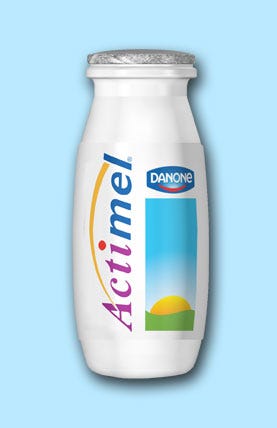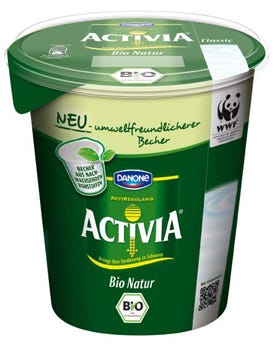Berlin—The mood at the opening of the 6th European Bioplastics Conference (Berlin, Germany) was jubilant, as for the very first time, conference attendance "broke the 400 barrier", as Andy Sweetman, chairman of European Plastics phrased it. And, in accordance with the best Bioplastics tradition, the day closed with a bang when Michael Thielen of Bioplastics Magazine announced the winner of the magazine's Annual Global Bioplastics Award.
November 23, 2011
Berlin—The mood at the opening of the 6th European Bioplastics Conference (Berlin, Germany) was jubilant, as for the very first time, conference attendance "broke the 400 barrier", as Andy Sweetman, chairman of European Plastics phrased it. And, in accordance with the best Bioplastics tradition, the day closed with a bang when Michael Thielen of Bioplastics Magazine announced the winner of the magazine's Annual Global Bioplastics Award. This year, the award went to Danone GmbH (Germany). An international panel of judges selected Danone from a shortlist of five nominees, citing the company's "significant contribution to moving bioplastics from a niche packaging product to a mass market product."
Actimel |
Activia |
Danone's use of Braskem's Green HDPE for its Actimel product packaging and NatureWorks PLA for its Activia brand garnered a European Bioplastics award. |
Danone, a leading producer of products such as medical nutrition and baby food and the global number one manufacturer of dairy products, this year became the first major corporation to package two of their biggest brands in bio-based materials. Today, Danone's Actimel yoghurt drink is packaged around the world in bio-HDPE from Braskem (Brazil), while in Germany, its Activia yoghurt cups are no longer made of PS, but from PLA produced by NatureWorks.
According to Danone, the new PLA packaging not only has the advantage of being produced from renewable resources, but less raw materials are needed for its production, and less end-of-life waste is produced.Using PLA has led to a 43% reduction in fossil resources that are used for production. Moreover, CO2 emissions were cut by 25%.
Danone was 'delighted' to receive the award. Marianne Schweiger, who accepted the award on behalf of Danone, said it was "a reward for the long, often laborious years of research and work which had gone into the development of the new packaging."
"We aim to set standards as a benchmark for other market players," she said. She went on to emphasize that the company will remain committed to the use of bio-based packaging materials. "Indeed we hope to achieve even better results in the future. For example, we now use PLA based on corn. In the future, we hope to be able to use PLA based on agricultural by-products for our PLA packaging. Our goal is to produce so much PLA packaging that we are able to establish a closed-loop recycling scheme. We will continue to work intensively to adapt to fully renewable and recyclable materials in the years to come."
About the Author(s)
You May Also Like




